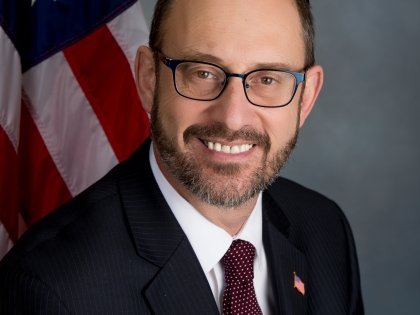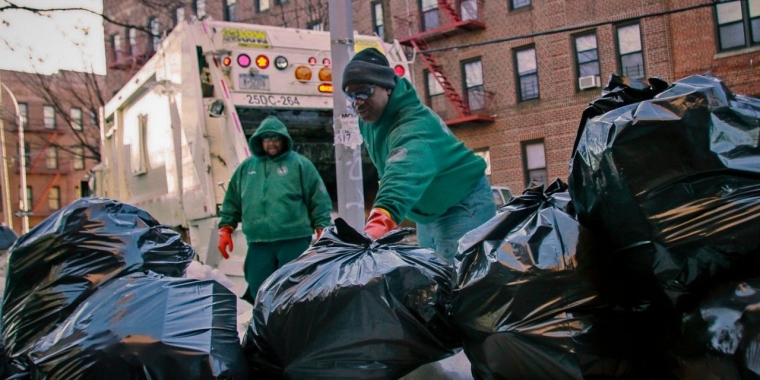
New York wants to curtail a program that aids disabled residents

Photo by Barbara Crosier - Advocates and individuals with disabilities hold a silent "funeral" for the state's Consumer Directed Personal Assistance Program in August 2019, ahead of proposed cuts to the popular home care program.
ALBANY — The state Department of Health is attempting to rein in a program that has grown popular with people with long-term physical and mental disabilities that enables them to choose their own caregivers.
The Consumer Directed Personal Assistance Program benefits 139,000 participants statewide. Under the initiative, participants use financial intermediaries to handle administrative tasks, including paying their caregivers on time. Caregivers are paid through the program.
New Department of Health provisions would curtail the number of financial intermediaries that cater to patients by shutting their services down entirely.
If the move is implemented, it’s estimated that 80 percent of patients would need to find new financial intermediaries to help them complete tasks essential to their care, which can seem near to impossible in certain parts of the state where access to those organizations would be close to nil.
In Onondaga County, not one financial intermediary license was awarded due to the new guidelines.
When asked about the decision at a budget hearing in February, Donna Frescatore, who ran the state’s Medicaid program and health insurance exchange, said that the pending standards would result in one lead organization that would perform administrative services with collaborating partners on the ground locally.
Still, the decision has been criticized by lawmakers because of the likelihood that it would disrupt a patient’s care.
That’s why this month two letters were sent to Gov. Kathy Hochul’s desk: One from Assemblyman Richard N. Gottfried, D-Manhattan, and chair of the Assembly’s Health Committee that was signed by 32 other members advocating for the department to delay or abandon the curtailment.
The other letter was from state Sen. Simcha Felder, a Brooklyn Democrat, for whom the Department of Health’s decision is personal. The senator’s mother doesn’t participate in the program, but is older than 100, frail and very sick, he said. Any change in her care could become a crisis.
“Instead of having a program that works, we’re going to wind up with at least some percentage of people who are not going to do it and we’re going to have to find people,” Felder said. The issue could be further complicated by the state’s potential inability to find care workers willing to do the job if the proposed steps are taken, he added.
An Albany resident, Gordon Fernandez, 59, knows what it’s like to benefit from such care. He was shot at age 18 and the injury left bullet fragments in his spine that remain there. After the shooting, he was confined to a wheelchair and relied on friends and family to help him complete daily tasks. It took five years for him to regain the strength to walk on his own again.
In 2018, Fernandez suffered a stroke that left him debilitated. He also suffers from multiple other health issues. His friend, Loralynn Greene, 25, was with him at the time the stroke occurred. She decided she couldn’t leave Fernandez alone and became his caregiver.
The two later enrolled in CDPAP so Greene could be compensated for the time she spent caring for Fernandez. She helps him prepare meals and assists him in the bathroom, in addition to other basic needs. The experience has brought the two closer together, Greene said.
“Having this care and being able to help Gordon is a huge relief,” she expressed. “Not only for Gordon but for me as well."
“Before I was his caregiver, I was his friend. I know what kind of care he needs and what kind of attention he needs. But if I would have had to stand by and watch someone else do that, I would have felt horrible.”
The program gives Fernandez the freedom to focus on what he loves, like working as a disc jockey. In his spare time, he likes to keep active when he can, living life to the best of his abilities.
Written By Michelle Del Rey



